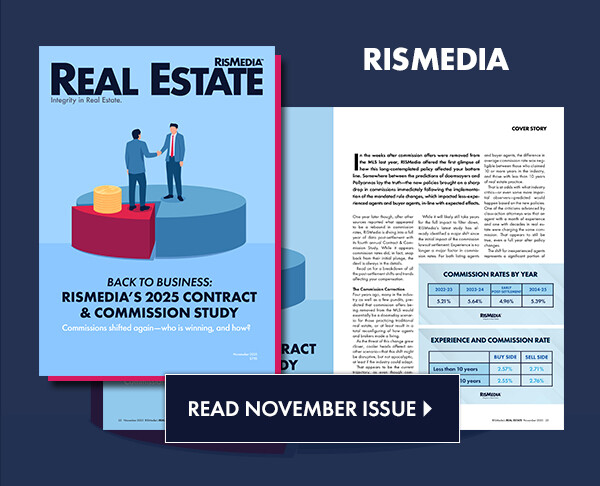Are real estate investors creating excessive competition amid the inventory shortage? According to a new report from realtor.com®, some markets are being hit hard by investor activities, while others are benefitting.
According to the data, investors are worsening the inventory shortage in 31 of the top 50 U.S. markets. In about 19 markets, however—including Atlanta, Dallas, Baltimore, Los Angeles and San Francisco—they are actually helping to replenish the number of homes for sale.
“Today’s buyers are facing a tough market and data shows they aren’t just competing with each other. With deep pockets and more flexibility, investors can be daunting competition for the typical homebuyer. Right now, data shows investors are buying more homes than they are selling, and while they get a lot of attention in today’s market, it’s worth remembering that they can also contribute to inventory levels,” said realtor.com® Chief Economist Danielle Hale.
Investors typically help buyers in big metros with low inventory levels. For example, in April, investors added to the number of homes on the market in 19 of the 50 largest U.S. metros, with Atlanta (+399 homes), Dallas (+239 homes), Baltimore (+188 homes), Los Angeles (+112 homes) and San Francisco (+93 homes) experiencing the biggest boosts.
For many investors, the buying strategy has changed in order to adapt and compete with traditional buyers.
“Our investors are used to making offers 15-20% below list but now to tie up any property, they must be aggressive and give full sales price along with cash and quick closings,” says Collette McDonald, leader of the Collette McDonald and Associates team at eXp Realty in Georgia. “Our market’s year-over-year prices, metro-wide, have increased 7% and in some areas 14%. Many investors are giving full lists with short due diligence and then asking for concessions during inspections. Smart listing agents do not allow for this but with the pandemic, the agent population has increased and their experience and knowledge are lacking.”
On the other hand, in smaller markets with more inventory, investors are having more severe implications. According to the report, investors took away inventory in 31 of the largest U.S. markets, led by Phoenix (-429 homes), Charlotte (-287 homes), Miami (-256 homes),Tampa (-224 homes) and Chicago (-221 homes).
“I don’t think the properties on the market have been on the market more than five minutes, even if it’s a coming-soon property, and I usually get between two and four investor offers emailed over to me,” says Nina Hollander, broker at Coldwell Banker Realty in Charlotte, North Carolina. “That’s the main thing that makes it attractive to somebody, and they can generally do a pretty quick close.”
Investor appeal hinges on several factors, according to Hale, but they are particularly looking at how local home prices compared to rents.
“When home prices are rising and rents are more stagnant, investors are more likely to sell off properties and contribute inventory,” says Hale. “On the other hand, the higher rents are compared to home prices, the more attractive the market is to investors looking to buy homes and convert them into rental properties.”
Jordan Grice contributed to this report.
 Liz Dominguez is RISMedia’s senior online editor. Email her your real estate news ideas to lizd@rismedia.com.
Liz Dominguez is RISMedia’s senior online editor. Email her your real estate news ideas to lizd@rismedia.com.











